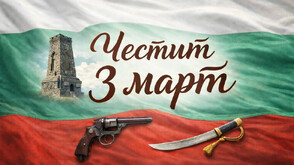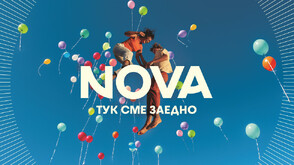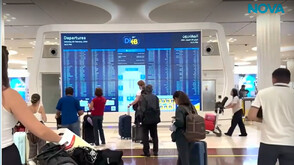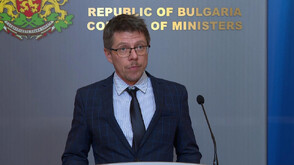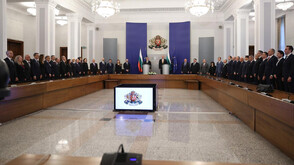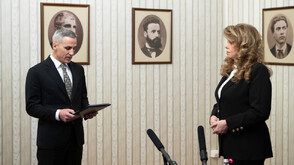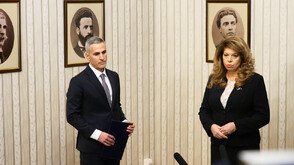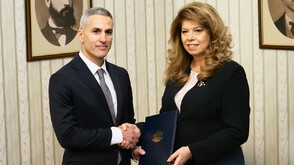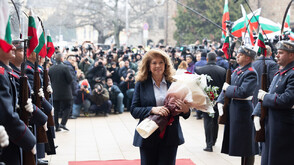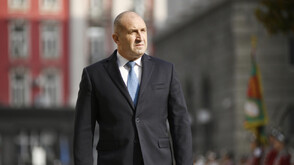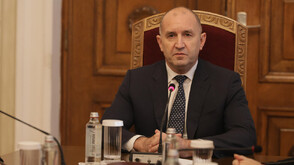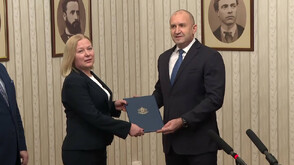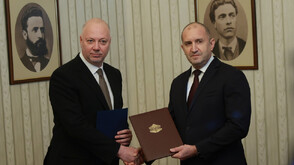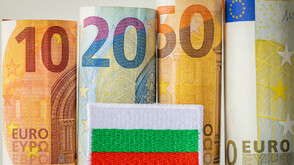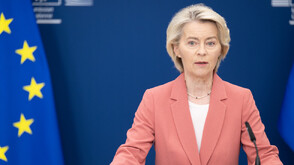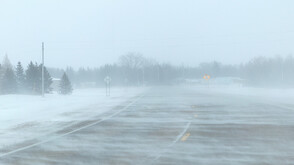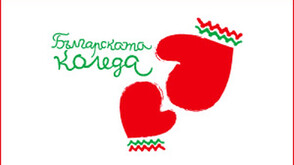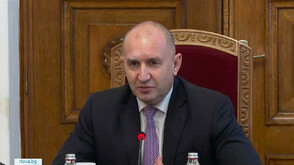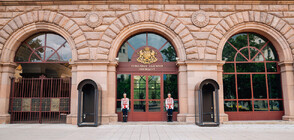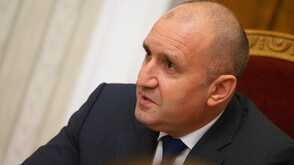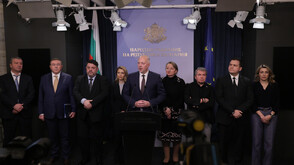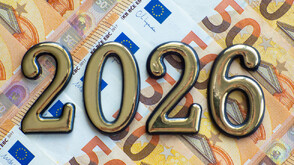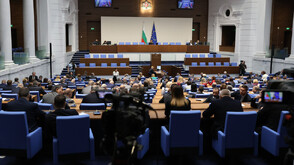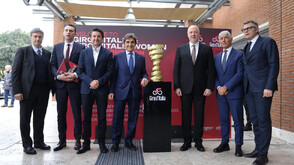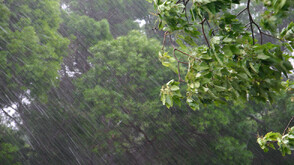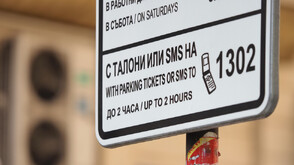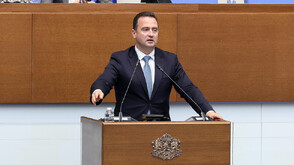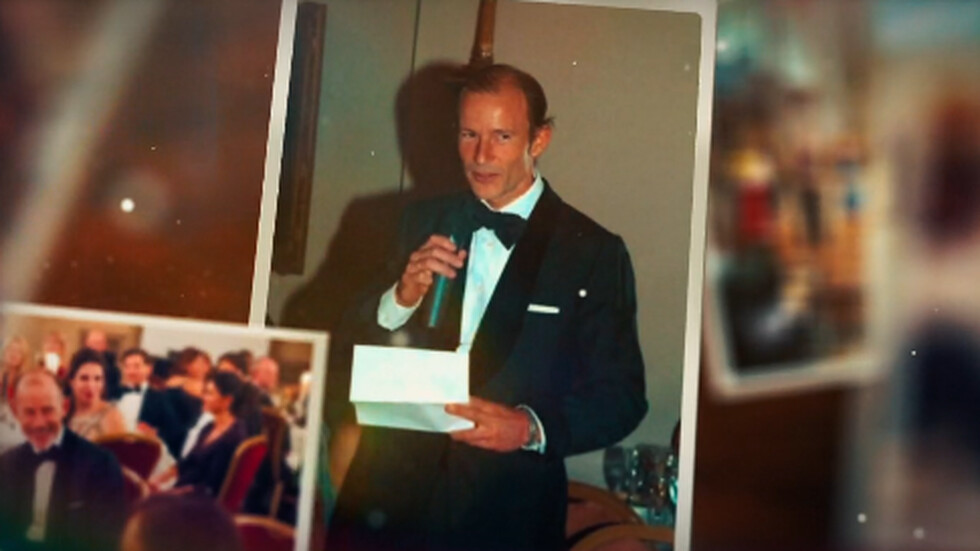
He gave an exclusive interview for NOVA
In an exclusive interview for NOVA the son of the last Bulgarian tsar talks about his personal life, about his children and the biggest wonder of his world. Prince Kyril of Preslav was interviewed by Dessislava Banova-Plevnelieva.
Your Royal Highness, for me it is a great privilege speaking with you, thank you for the opportunity! The Bulgarian media saw you for the last time in Bulgaria for the pilgrimage to the mortal remains of your great-grandfather, King Ferdinand. 76 years after his death, he was finally buried in Bulgaria. What was the feeling after so many yaers this saga to be resolved?
It was a wonderful feeling for everyone in the family and for myself. I was fortunate to be able to attend. You know, not all my brothers made it. One of my brothers is a surgeon and patients were waiting for surgery so unfortunately he couldn't come but I was lucky enough to be there. I was most impressed by the fact that the nation, Bulgaria, the parliament also accepted this as an event of national importance, an important heritage for the people. To see the guards carrying the remains of King Ferdinand was truly magnificent for me. Imagine for my father, who saw it in his childhood, to have it happen again, it must have been very special. It was superb, really. You know, it wasn't easy. Many things had to be resolved, not the least of which was the city government of Coburg allowing the remains to be transported back to Bulgaria. This was King Ferdinand's wish, clearly stated before his death in 1948. Finally, his wish came true. My father, at his age, is focused on the legacy that will be left by the family and what it means for Bulgaria. Many things have happened in Bulgaria in the last 100 years and it is important that they remain. My father works a lot for the Royal Museum in Vrana - it will be great and will remain as a legacy for the nation. I think there is still work to be done in terms of visiting opportunities. At the moment it is mainly for people involved in science, studying history, but soon it should become available to everyone, so that the Bulgarian nation can be proud of its history and its different periods. For us, the pilgrimage was really special and it was very important that his mortal remains return to Bulgaria as part of Bulgarian history, so it was wonderful that it happened.
And finally he could rest in peace, as it was his will to be in Bulgaria.
Absolutely.
You celebrated wonderful anniversary this year. How do you feel at 60 years old and what did you wish for?
It's hard to believe that I'm already 60. It's a significant number. With earlier birthdays, turning 40 and 50, you worry that you're getting old. The good thing about turning 60 is that you start to feel lucky that you are still here. You hope you can make it to 70, 80. There's a change. It is an important event in everyone's life. For me, the age difference between me, my mother and my daughter is almost exactly 30 years. Looking back and seeing how much my kids have grown is so special! For me, 60 is a big number, but I hope I have a few more years left because there are so many things I would like to do. I'm very excited.
I'm sure you have a lot more to do, so I wish you good health! How does it feel to be the son of the last Bulgarian king and what is it like to live with the surname Saxe-Coburg?
Thank you! It is a huge honor for me, I have always been proud to be part of this family. As a matter of fact, growing up in exile in Madrid, especially at the beginning, we used a different last name - at school we were called Rilski. We were trying to keep as lower profile as possible. Much later in life I began to use the surname Saxe-Coburg. I actually first used it when I got grades to French baccalaureate because the full name on the birth certificate had to be used. Thus for the first time I was Saxe-Coburg. When they were published, the results were divided into two sections - one for those who took the exam and one for those who failed. I looked for myself in the column for those who took the exam, but when I didn't find myself on Rilski, I got worried, for a moment I thought I had failed. But I realized that I should be looking for Saxe-Coburg and I saw that I actually had the highest success rate. Since then I've been using that name. For me, before Saxe-Coburg, I am Bulgarian. I have always been proud to refer to myself Bulgarian! If they ask me what I am, I answer that I am Bulgarian. Although I have not lived in Bulgaria, it is a source of pride for me. I am very proud to be a part of this family!
Your parents are an example to all of us of a close-knit family. This year marks 62 years of happy marriage for them. What do you think their recipe is?
That's right. As you know, I have already failed in this attempt because I divorced after 20 years of marriage. I know how hard this is to achieve. I think it's a lot of things, but just having an affinity, respect, matching interests, wanting to do things together and be together. I have to admit, as a kid and as an adult, it's always been great to see how close they are, the chemistry between my parents, and the sense of a team has always been there and still to this day. Although they are getting older, my mum will be 90 years old in January, it's amazing to see that. And you're right it's extraordinary. I think it's getting harder in my generation and the ones that follow. In my parents' generation, there are many similar couples - people who have spent their whole lives together. This is incredible. I can't imagine if it wasn't like that- I take it for granted, I grew up like that, but you're right, it's amazing and great that they're still together!
Great respect to them, they serve as an example for all of us, believe me! You are a man of the world, you were born in Madrid, you studied in the USA, now you live and work in London, and part of your family lives in Bulgaria. Where did you feel the best and where - home?
I often ask myself this question and I would say a few things. Growing up in Spain has marked me above all with an affinity for open spaces with a dry climate. There is something about it, from my childhood in Spain, and not so much Madrid, but a place in the west of Spain, Badajoz - we used to go there often as children. It is a rural, very dry place. Almost like the western movies, a bit like a cowboy part of Spain. For some reason it has left an affinity and preference for a dry, spacious country location. If I want to enjoy a vacation or nature, I look for similar places around the world. I think it's because I grew up in Spain, in the dust, in the dry heat, and it left its mark. Like you mentioned, I grew up in the city, in Madrid, then I moved to New York, now I live in London. I've lived in big cities all my life. I like it. I also spent some time working in Paris in the late 1980s. I have to tell you, in London I find a very good balance between the big city with all its advantages and at the same time it's easy to live here - it's easy to get around, there's a lot of greenery and it's a very international city. So I'm happy to be based in London, but I travel a lot for work, pretty much everywhere, but I definitely like London. And where do I feel I belong... It's hard to say, I'd say I don't feel like a citizen of a particular city - I don't feel like an Englishman or a Londoner or a person from Madrid... I wonder, maybe it's really just the attraction to dry and open spaces that defines me. Otherwise, I can live anywhere.
You are one of the founders of the Bulgarian City Club in London. You mentioned that you are a proud Bulgarian, but do you miss Bulgaria?
Yes, of course. Look, during communism we met very few Bulgarians. Growing up, I never met another person named Kyril, until the end of communism - then suddenly almost everyone was called Kyril for the first time we had the opportunity to connect with other Bulgarians. In fact, the Bulgarian City Club was the brainchild of several of the early migrants from Bulgaria who came to London - some of whom had studied at a Western university. They decided to create an association that would facilitate networking, help create opportunities to meet. One of them asked me: "Kyril, given your history and your name, if you join, probably other people will want to join, and that's the point - let's do it." And so we started the club in the early 90s. Turns out it worked great. Subsequently and other Eastern European countries made their own City Clubs – Poland, Ukraine and others. This was way before the internet and social media and it was a great platform for making connections, for helping each other, for participating in charitable activities. Thanks to the City Club, I was able to meet hundreds of Bulgarians, extremely impressive people from all walks of life. We have organized all kinds of social events. This is the best thing for me – to be able to meet so many Bulgarians over the years, even without having lived there. Finally, when my father returned to Bulgaria, we had the opportunity to travel regularly - I haven't been able to spend much time there because I work, but I have the opportunity to visit the country regularly. Time flies - I'm 60 years old now and I must have been 30 when we started the City Club activities. An entire generation has passed, but we have left our mark. Nowadays with social media there is generally a strong community, with different groups and activities - which is great.
It is wonderful that you are so engaged with Bulgaria. You also participate in many charitable causes - I know that you are an honorable member of the Stoyan Kambarev Foundation and how much you have helped the foundation and Desi Tenekejieva in their support for young talents. Could you tell us more?
Yes, there have been many causes over the years. Desi's foundation has a great cause - supporting young talents. This is so important and not easy, especially in Bulgaria, where there are so many talents. This is one area in which I am involved. Desi is force of nature, so with her help we've managed to organize impressive fundraising events in London and showcased young talent with the Stoyan Kambarev Foundation - it's so wonderful. The London community at the events we've run have been so incredibly impressed by the talent of these young musicians and performers. But also many others - the Bulgarian school in London, which is also very successful in teaching many Bulgarian children, as well as the various charitable organizations we have worked with - Friends of Bulgaria and others - they are all a cause for joy. I have limited time, I work a lot and I have a family, but I always try to find time to get involved in different projects. There are many Bulgarians in London who are very proactive to get these initiatives going, to get the community involved and to raise the funds. We recently united for the Bulgarian church in London. We always have values causes. The support has been impressive, right from the beginning when we were just starting out and on a small scale. Even then, we managed to achieve something substantial and set an example that over the years - be it through the City Club or in parallel - we have participated in charity. In addition, with the City Club we have been involved in mentoring, providing job opportunities for young graduates and we have also had success here over the years.
It's impressive, thank you and keep up the great work! You have been a banking and financial expert for many years, you have worked for some of the largest financial houses and hedge funds, and for 4 years you have been an adviser to the Bulgarian President Petar Stoyanov on macroeconomic issues. What is the recipe for economic success for us Bulgarians?
I wish I knew. Some of the Nobel laureates in the field of economics would not even have a solution to these problems. I was lucky that during the time of President Stoyanov, he took the initiative to include me in the early phases of privatizations and the construction of the post-communist Bulgarian economy. It was a difficult time. The situation was very complicated, but with what has been achieved over the years, it is clear that Bulgaria is on the right track, it's just difficult because the starting point was difficult. It takes time and effort, but a lot of things are falling into place. Bulgaria has a key advantage - education. Many Bulgarians appreciate the value of a good education and I hope that this will continue as a major factor in the development of a nation. I am familiar with the complicated political situation, because of the electoral system and the lack of a clear majority and the impossibility of forming a government. These things are a challenge, but in general, with the development of the economy, with the reinvestment of more capital, with the effort of many people, Bulgaria will catch up with the rest of Europe. Always there are possibilities. Now the mobile, technology-based economy will benefit Bulgaria in the medium term. I wish the country much success. The right decisions have to be made in the long term and ensure that there is a code of ethics and work ethic that people must follow and that reaps success.
Let's hope we have wise politicians! You have 3 grown children, how would you describe yourself as a father?
You should ask them! I consider myself a hands-on parent. For my generation, this is normal - even when they were small, I tried to spend as much time as possible with them, participate in their studies, help with homework, try to educate them in basic values, but also give them the opportunity to develop a skill to be proud of, whatever it is - if they're good at singing, at running, at solving math equations, whatever, but finding something they feel they're good at. This gives the motivation to develop in life. For me, that was important, and looking back, I think I was able to give them a sense of being good at something and having a passion for it. As well as knowing that they should work hard, that nothing comes for free, and that they should be able to appreciate and enjoy everything!
Of course you succeeded! We know how talented Princess Mafalda is and we are following her music career with interest! Two years ago your beautiful daughter got married - are you already dreaming of grandchildren?
The real shock will come when I have grandchildren. I'm in no rush to be honest, but it's my kids' choice, and if they have the opportunity, even better. We'll see. But seeing myself as a grandfather would be a real shock…
Tell us more about Princess Olympia and Prince Tassilo?
As you mentioned, Mafalda is a professional singer. Business is not easy. It takes a lot of talent, but there are also a lot of conditions in life - you can be more or less lucky - but she definitely works hard and slowly and steadily progresses in her career, which is exciting. She tries very hard and I'm glad that it works out and she can support herself from her passion - singing. My second daughter, Olympia, has been working in fashion since graduating from university. Worked for a French company – Celine – in Paris for 4-5 years after university. At some point, she decided that she preferred to be independent and started her own business. She still lives in Paris - she has become almost French after all this time there. Now she works as an independent expert in fashion and consults companies on collections, on sourcing - I don't know exactly what, but she does that kind of business. She is doing very well and is focused on her career, she is a great professional and I am confident in her success. And my son Tassilo turned 22. He just finished university - he was studying in Boston, now back in London and applying for a job. He is studying natural sciences, biology, but would also like to work in music – rather in the talent management and events side of the music business. Companies like Live Nation and the like, maybe smaller, but still in that sector of the economy related to managing musicians, organizing events, distributing tickets or advertising. He is actively applying for jobs now, so I hope he finds something soon. I'm sure he'll do well. He is just starting his career at this age which is exciting and it will be interesting to see how he does.
Everything sounds great, you should be very proud of your kids! You mentioned that your son is in one part of the world, your daughter is in another, where do you all gather as a family?
Absolutely, my parents come in third. The challenge with the international family is this. Especially when the children's careers take them to different places in the world it becomes more difficult to have a traditional family life with Sunday lunch with the parents for example. This doesn't happen in my family, but we do meet on special occasions - the last time on my 60th birthday we were in Spain, we went hiking to the Gredos mountain range for a few days, it was very nice. We usually get together on holidays - either during the summer holidays at our house in Mallorca or at Christmas, which we sometimes celebrate in Bulgaria. As a matter of fact, my mother is turning 90 very soon and the whole family will gather in Bulgaria for her birthday.
Your Royal Highness, what is the greatest miracle of your life?
I consider myself lucky, but perhaps the best thing about me is that I can enjoy everything. I look at life positively and appreciate the luck I have, the things I do. It's a gift. We live in a time where we are taught that we can never be satisfied, we must always want more and more. That's fine, but you're compromising. I'm always rather satisfied, which kind of sounds bad. But I can accept and enjoy everything that happens. For me it is a miracle and it is defining for my life.
Your Royal Highness, it was a great pleasure and an honor to talk to you, thank you very much for the interesting conversation! Keep up the good work and maybe see you in Bulgaria?
Thank you very much, Dessislava, it was my pleasure! All the best and I hope to meet you in Bulgaria.
Редактор: Маргарита СтоянчеваПоследвайте ни
